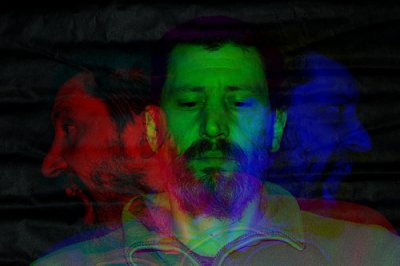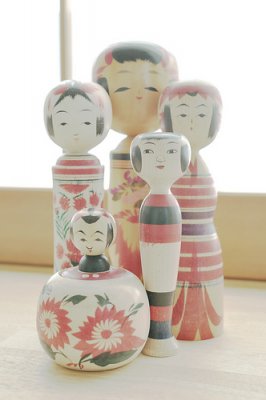Introvert or Extrovert? Jung Personality Types

By: Nikk
by Andrea M. Darcy
Dividing personalities into groups goes back to at least the Greeks, with their system of ‘four humours’.
But most modern personality systems, such as the Myers-Briggs, are a modified take on a system for understanding personality created by Jung himself, along with the terms ‘extrovert’ and ‘introvert’.
So what exactly are Jung’s personality types?
Jung Personality Types
Jung formed his view of personality types because of his desire to understand the therapeutic relationship. He realised that the personality of a therapist affected the way he or she interacted and helped clients.
Of course he ended up creating a system that was applicable to all relationships, and can still be useful to you today.
A warning about personality types
It’s important to note (as Jung himself did) that —
There are many ways of grouping and generalising personalities. The idea is to understand ourselves and each other better, not put each other into boxes or limit each other.
We are not ‘fixed’. Despite our tendency to have certain personalities, we can work towards more balance. And personality types are not things we can see under a microscope. They are ideas for explaining human nature created by humans themselves, and a personality explaining a personality is not an exact science.
Introvert vs Extrovert (‘Attitude’ Types)
This was the beginning division of Jung’s attempt to understand personalities. He called these the two ‘attitude’ types.
Introversion – you are inward looking. You focus your energy on yourself and your own thoughts/feelings/experiences, which you find more interesting than the world around you. You need time and space to yourself.
Extroversion – you are outward looking. Your energy is focused towards the external world, to others or other things/experiences. You need action, and to be with others.
The Four ‘Functions’
Of course Jung soon realised that people were far too complex with too many sides to their personalities to all fit into two categories.
He decided that his system needed to allow for more differences, so he added what he called the four ‘functions’. These are the two opposing pairs of thinking/ feeling, and sensation/ intuition.
Thinking – logic and intellect are the lenses you see things through. You are a rational sort with a good grasp of cause and effect.
Feeling – this one was rather poorly named, Jung himself realised it too late. It’s not about living from a place of emotions but about being the sort who always evaluates if something agrees with you or not. You make value judgements over whether something is good/bad, positive/negative, pleasant/unwanted, etcetera.
Sensation – you make decisions based on sensory impressions. It’s about how things look like and sound like to you. You tend to be materialistic and one for taking things at face value over digging deep.
Intuition – you are guided by your unconscious in the ways you see and interact with the world. Your world is one of hunches, chance, and possibilities.
The Eight Combinations
Each of the four functions is applied to either introvert or extrovert, leading to eight Jung personality types.
Note that it is possible to be a mix of more than one type, and we might change types slightly as we grow and mature. Again, this is not a science, it is merely a way of categorising in an effort to better understand each other.
These are of course a bit more in-depth than this article can allow, but briefly:

By: yoppy
Introverted Thinking Type
intellectuals driven by their inner world of ideas, more interested in theories than facts or practical outcomes. They are not good with their feelings and can be awkward and defensive in relationships. Often intellectuals, scholars, philosophers etc.
Extroverted Thinking Type
Driven by logic, thinking, and practical outcomes at the expense of feelings, they are dutiful but can lack warmth and empathy. Often scientists/lawyers/engineers etc.
Introverted Feeling Type
Inward-looking and reserved, they are quiet types who don’t like conflict or ugliness. Can come across as illogic, dreamy, and sometimes depressed. Loyal and often with strong spiritual tendencies. The classic archetype here would be a nun or spiritual seeker.
Extroverted Feeling Type
Social, conventional, and charming, these types have no problems with social situations but it’s important to them to fit in and be successful. They can have a tendency to be shallow or slightly manipulative. Often in media, PR, marketing, and sales, with many actors in this category.
Introverted Sensation Type
Living life from their personal sensory experiences, they can seem quite out of touch with reality and ungrounded, or special and visionary. They might claim to have a capactity to see, hear, or experience things others don’t, like visions, ghosts, etc. Often creative, such as artists writers and musicians.
Extroverted Sensation Type
The least focused on the inner world, they can dismiss it entirely. They much enjoy living in the material world and the sensations it can provide, from lavish meals out to extreme sports. These are the hustlers and ‘bon vivants’ of the world, but they can also veer toward addiction and perversions where their love of sensation goes to the dark side. Business types.
Introverted Intuition Type
These are the dreamers of the world, seeking to understand our ways of being via dreams, spiritual ideas, revelations, and archetypes. They might bring new revelations to light, and would have once once been the shamans and the mystics. but there is also the danger of being lost in the fantasies and being an outcast. This type often end up poets, psychics, or working in new age or religious circles.
Extroverted Intuition Type
Despite enjoying seeing a problem from all angles, this type will ultimately choose their intuition over paying attention to facts. They can be exciting groundbreakers, but they can also be impulsive and irresponsible, often not finishing things. They don’t like playing by rules or conventions and can ruffle feathers. This type is where you’ll likely find entrepreneurs and designers.
How are Jung personality types useful to you?
For Jung, the whole point of understanding ourselves is to achieve ‘individuation’ – finding our ‘real’ selves. Understanding our personality types works best as a framework to help with this process.
If we recognise what is easy or natural for us, we can then recognise what we need to work on. This can lead to a more balanced personality, and a more balanced approach to relationships and life.
If, for example, you now realise that you are an introvert, what steps could you take to integrate some of the characteristics of its opposite (extroversion) in ways that could improve your daily life? If you are a thinking type, what could you do to learn more about understanding your emotions?
Would you like to understand your personality and emotions more? Harley Therapy connects you with therapists working from several central London locations, or now worldwide via online therapy.
 Andrea M. Darcy is a mental health and wellbeing expert and mentor, with training in person-centred counselling and coaching. She is a huge fan of Jung’s body of work, if less so of the man himself and how he was known to treat women and children! Find her on Instagram @am_darcy
Andrea M. Darcy is a mental health and wellbeing expert and mentor, with training in person-centred counselling and coaching. She is a huge fan of Jung’s body of work, if less so of the man himself and how he was known to treat women and children! Find her on Instagram @am_darcy






Hi,
Thank you for the information.
Would you please reference the definition you have given of introverts –
“Introversion – you are inward looking. You focus your energy on yourself and your own thoughts/feelings/experiences, which you find more interesting than the world around you. You need time and space to yourself.”